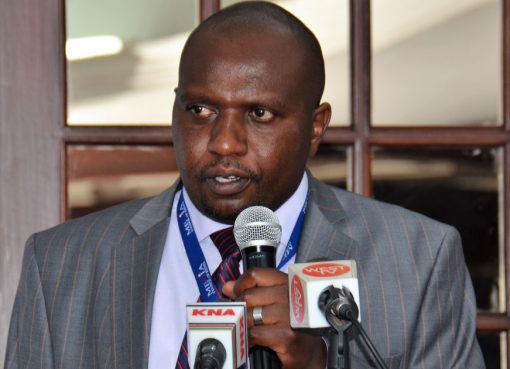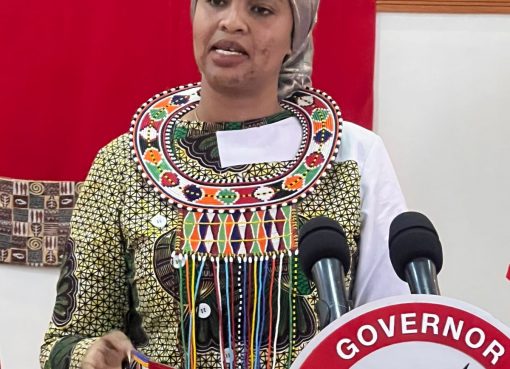Irrigation Principal Secretary (PS) Prof Fred Segor has encouraged learning institutions in arid and semi-arid (ASAL) areas to venture in greenhouse farming by utilising water projects established by government near their institutions.
Prof Segor made the call on Friday at Moinonin primary school in SaimoSoi ward of Baringo North sub-county when he commissioned Sh8 million solar powered water and micro irrigation project funded by the national water harvesting and ground water exploitation programme.
He expressed the need for embracing greenhouse farming saying it will boost school feeding programme as well as generate income to schools in the dry regions faced by perennial famine.
“I am encouraging schools especially in ASAL areas to start forming agricultural clubs and establish greenhouses for horticultural crops like tomatoes, cabbages, sukuma wiki and carrots so that we can utilise water within our institutions to attain sustainable food security for the students as well as neighbouring community,” he said.
The PS said young school children aged 10 and above ought to be taught greenhouse farming at an early age saying it will make them live better lives that do not over depend on goods from markets.
Prof Segor who also toured ongoing construction of Sogom dam in Kabartonjo ward revealed that Kipcherere day and boarding secondary school and Barketiew primary school will be the next beneficiaries of boreholes in the area.
County executive committee for water Dr Joel Koima lauded the national government for making learning institutions their top priority in terms of setting up of water resources promising that the county government will also work closely in ensuring that locals get clean water for domestic, animal and irrigation use.
Dr Koima who was accompanied by area MCA Ruben Cheserem stated that the lower parts of Baringo county including Saimo Soi, Bartabwa and Kerio valley region was in dire need of water.
Area deputy commissioner Joseph Obwocha agreed that establishment of water and irrigation projects in the area was God sent since it will improve the livelihoods of residents and schools who for decades have been trekking more than 30 kilometres in search of the natural resource.
By Benson Kelio and Christopher Kiprop



